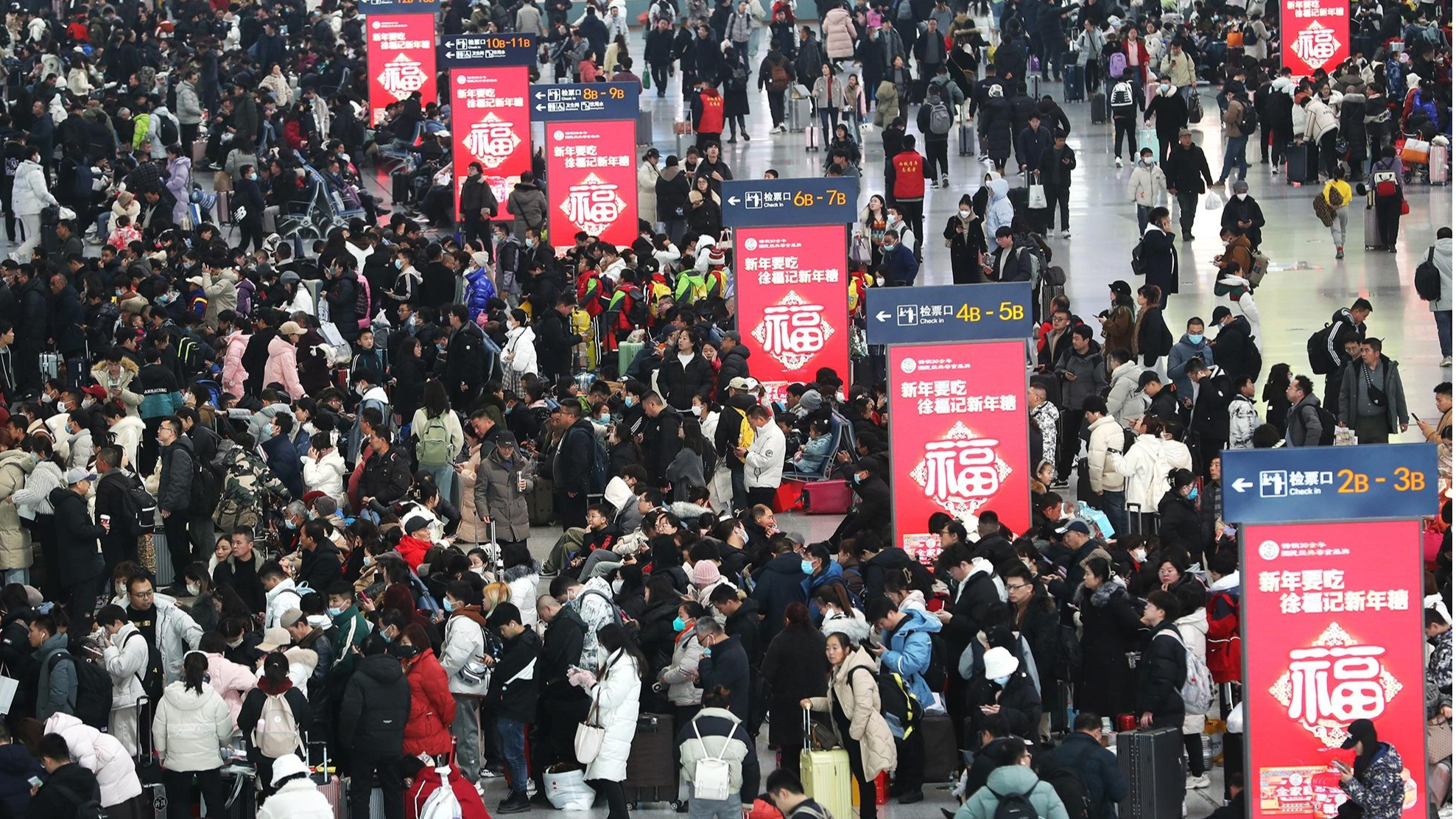Transportation sector braces as busy Spring Festival travel season kicks off

Relevant departments are ramping up efforts to meet the surging travel demand during the upcoming Spring Festival period, aiming to enhance transportation capacity and improve services, officials said at a news conference on Wednesday.
During the 40-day Spring Festival travel rush, 14,000 trains will operate daily, increasing passenger capacity by 4 percent. An average of 18,500 flights per day will be scheduled, representing an 8.4 percent increase, said Li Chunlin, deputy head of the National Development and Reform Commission.
"With Spring Festival arriving earlier this year and featuring an extended eight-day holiday, various groups, including students, migrant workers and tourists, will travel simultaneously, putting the transportation system under intense pressure in a short period," Li noted.
READ MORE: China expects record-high air travel during Spring Festival travel rush
The Spring Festival travel rush — during which 9 billion passenger trips are expected to be made across the country — will begin on Tuesday.
In terms of rail travel, passenger trips are projected to exceed 510 million, with a daily average of 12.75 million trips, marking a 5.5 percent year-on-year increase, according to Zhu Wenzhong, head of the passenger department at the China State Railway Group, the national railway operator.
New rail lines have been added to routes with high passenger volumes, including those connecting major cities such as Beijing and Shanghai. Notably, the newly built Shanghai-Suzhou-Huzhou high-speed railway and the Jining-Datong-Yuanping high-speed railway will help accommodate the increased demand during the festival, Zhu said.
To further support capacity, 185 new Fuxing high-speed train units, capable of traveling 350 kilometers per hour, have been put into service, he said.
In areas with concentrated passenger flows before the festival, 1,724 pairs of long-distance trains will be scheduled, an increase of 64 pairs. During peak periods, 329 pairs of long-distance trains will operate at night, representing a 38-pair increase, according to Zhu.
Xu Qing, director of the transport department of the Civil Aviation Administration of China, said that the administration has made comprehensive arrangements to accommodate a record 90 million passenger trips by air during Spring Festival.
"Flight safety remains a top priority. In 2024, the total number of transport flights has risen by 12.3 percent compared to 2019, while the rate of accidents and delays caused by transportation aviation per 10,000 hours has decreased by 74.6 percent," Xu said.
Self-driving is expected to be the dominant mode of travel, with an estimated 7.2 billion trips forecast, accounting for 80 percent of total nationwide travel, according to Li.
Wang Qiang, director of the traffic management bureau of the Ministry of Public Security, pointed out that targeted measures are in place to address potential hazards on the roads and ensure safe travel. Authorities will also release timely traffic updates to keep the public informed during the travel rush.
ALSO READ: Spring Festival travel rush: China eyes 9 billion inter-regional trips
The widespread availability of charging stations — covering 97 percent of highway service areas across the country — will support the increasing use of electric vehicles during the travel rush, according to Gao Bo, head of the Ministry of Transport's transport services department.
Spring Festival will coincide with frequent cold air events, though they are expected to be of low intensity. Two cold fronts are forecast to occur before the holiday, from Jan 14 to 16 and Jan 24 to 27, bringing low temperatures to most regions, said Wang Yawei, head of the emergency disaster reduction and public service division at the China Meteorological Administration.
Wang advised local authorities to strengthen efforts in preventing and mitigating the effects of snowfall, icing and low visibility on roads caused by cold weather.
Contact the writers at lishangyi@chinadaily.com.cn


